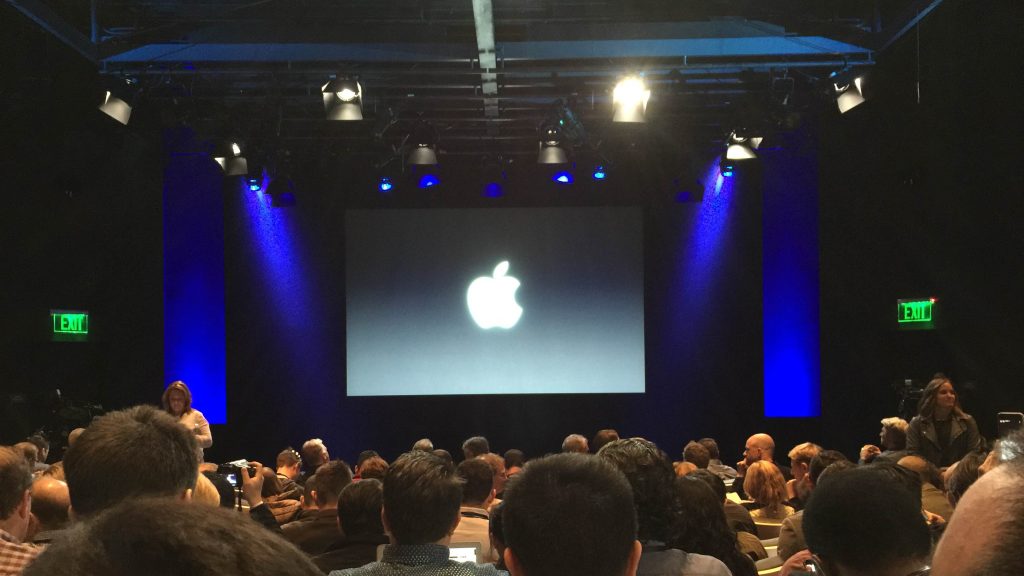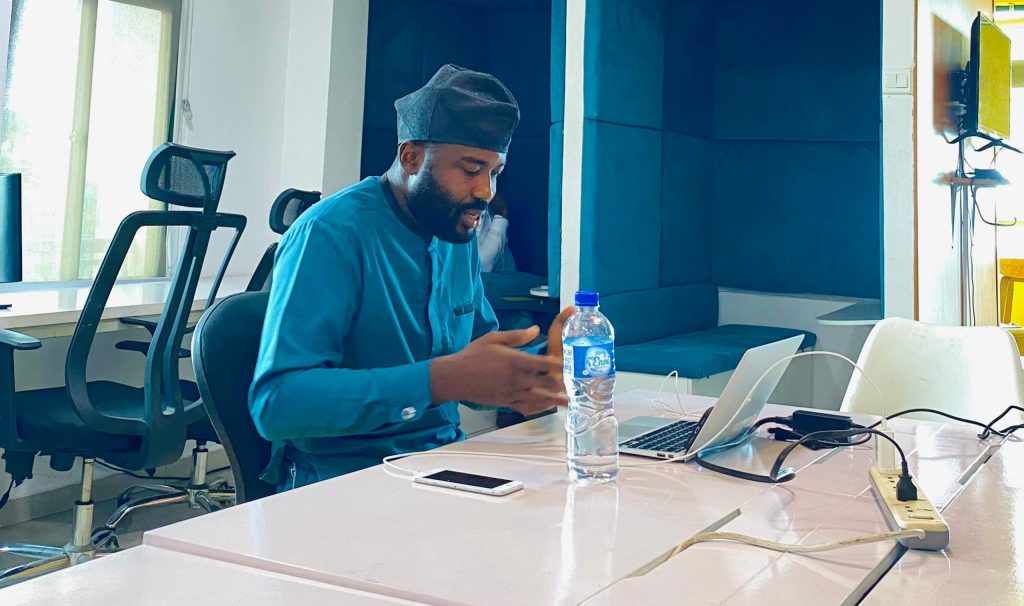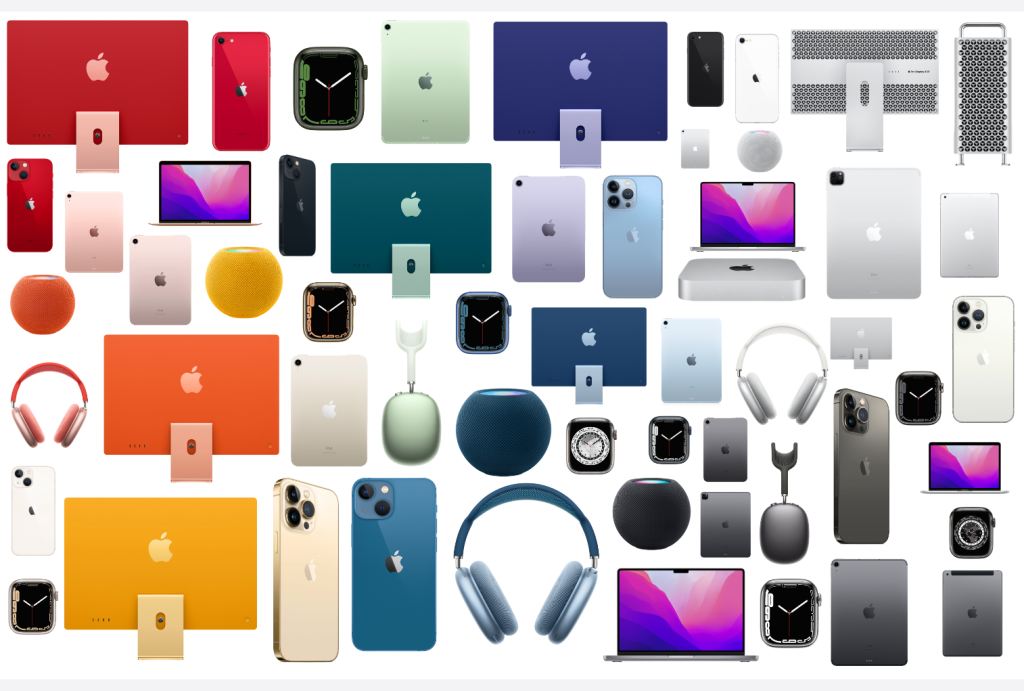Last week, I found myself eagerly awaiting the unveiling of the latest iPhone 15. Despite the numerous rumors swirling on social media about the new features in this product line, many critics weren’t holding their breath, believing that Apple’s innovation had stagnated over the years. Do you share this sentiment?
For me, I’ve been a devoted iPhone user for the past six years, and I can’t envision ever switching back to Android. It’s all about the experience. Currently, I’m using the iPhone 11 Pro, but the buzz surrounding the iPhone 15 launch has me contemplating an upgrade in the near future.

Image – Apple Product Launch 2023
With the excitement building around the new iPhone release, it’s an excellent time to explore the lessons that founders in Nigeria and beyond can glean from Apple as a company. In this blog post, we’ll dive into these key lessons. However, before we do, let’s uncover some fascinating facts about Apple’s presence in Nigeria and other intriguing tidbits.
Apple has had a significant impact on tech enthusiasts in Nigeria, just as it has globally. Despite the challenges of accessing Apple products and services in the Nigerian market, the brand enjoys a dedicated following. Many users appreciate the seamless integration of Apple’s hardware and software, along with its sleek design and user-friendly interfaces.
Furthermore, Nigeria’s entrepreneurial spirit aligns well with Apple’s legacy of innovation. Nigerian tech startups are increasingly looking to Apple’s success story as a source of inspiration. The anticipation surrounding the iPhone 15 launch provides an opportunity to explore the valuable lessons that can be applied in the Nigerian startup ecosystem.

Image – Hakeem Disu, a member of the hub and CEO of KoinWa, Lihon_Store and Lihon_Energy with his iPhone and Macbook
iPhone Usage in Nigeria: Surprisingly, in Nigeria, only 14% of smartphone users prefer iPhones. READ MORE
iPhone 15 Affordability: The iPhone 15’s cost in Nigeria is so significant that it could amount to 23 months’ worth of earnings for someone earning the minimum wage and this is just for the lesser storage space.
Investing in Apple Stocks: Nigerian investors interested in Apple can easily purchase Apple stocks using the Trove app, making it accessible to a broader audience. EXPLORE ON TROVE
Apple’s Environmental Initiatives: Apple is committed to sustainability and has announced plans to be carbon neutral across its entire supply chain by 2030. They are also making strides in recycling and reducing their environmental footprint.
Education Impact: Apple has played a significant role in education in Nigeria, providing tools like iPads and MacBooks to schools and universities to enhance learning experiences.
Stay tuned as we delve into what Nigerian founders can learn from Apple’s remarkable journey, innovative strategies, and the enduring appeal of its products.
A little Background on Apple
Apple Inc. is a multinational technology company headquartered in Cupertino, California. It was founded on April 1, 1976, by Steve Jobs, Steve Wozniak, and Ronald Wayne. The company is known for its iconic hardware products, including the iPhone, iPad, Macintosh computers, and Apple Watch, as well as software like iOS, macOS, and the App Store. Apple is renowned for its design aesthetics, user-friendly interfaces, and commitment to innovation. The company’s ecosystem of products and services, including iTunes, iCloud, and Apple Music, has created a loyal customer base.

Image – Apple Products
An Exciting Fact about Apple I found out
One really exciting fact I found out about Apple is that it was not always a giant in the technology industry. In the mid-1990s, Apple faced financial difficulties and was on the brink of bankruptcy. In its early years, Apple was a pioneer in the personal computer market and was responsible for many innovations in the industry. By the late 1980s, however, Apple was facing increased competition from IBM and Microsoft, which had both released successful operating systems and computer products. In an effort to compete with these rivals, Apple embarked on a series of ill-fated business decisions. Steve Jobs later returned to the company in 1997, and under his leadership, Apple underwent a remarkable transformation, introducing products like the iMac, iPod, iPhone, and iPad that revolutionized their respective markets.
Comparing Apple’s Valuation to African Startups
If you also didn’t know, Apple Inc. made Wall Street history as the first company with a market value which went above the historic $3 trillion level (market capitalization of $3.05 trillion) is now decisively below the historic level, quite amazing right?
As of September 2023 though, Apple now has a market cap of $2.747 Trillion. This slide comes amid reports of China planning to expand a ban on the use of iPhones to government-backed agencies and state-run companies.
Looking at our own continent, the total amount of funding recorded by African startups amounted to $4.84 billion in 2022 which is a 7.62 percent increase from $4.46 billion recorded in 2021. This eventually might exceed $5 billion which is nearly $1 billion more than in 2021.
From this, we can conclude that the difference is quite large but we can also see the growth African startups are having. African startups have been attracting increasing investments recently, but it’s also very important to note that the technology ecosystem in Africa is still developing and funding levels may not be on par with global giants like Apple, we can clearly see a substantial growth potential in the African startup scene.

What Nigerian founders can learn from Apple’s remarkable journey
Nigerian startups, like other startups anywhere in the world, can learn valuable lessons from Apple’s product launch strategies. We know Apple is known for its highly successful and meticulously planned product launches, and here are some key takeaways I believe Nigerian startups can implement in their journey.

Image – Members of Aviv Wallet in the hub during our Book Club Meeting
- Emphasizing User Delight: I can’t stress enough how Apple’s products excel in providing an exceptional user experience. As an avid iPhone user myself, the seamless and user-friendly interface never fails to keep me engaged. This underscores the importance of prioritizing user-centered design for Nigerian startups. Ensuring that your products or services are not only easy to use but also visually appealing can be a game-changer in a competitive market. After all, a positive user experience can set you apart from the crowd and keep your customers coming back for more.
- Effective Storytelling; The Power of Narrative: Apple has a knack for weaving captivating tales about its products, painting a vivid picture of the issues they address and the advantages they bring. It’s a strategy that truly resonates with me. Nigerian startups, too, can harness the magic of storytelling to forge profound connections with their audience. Apple’s not just about selling products; it’s about crafting a narrative. Nigerian startups should delve into the story behind their offerings. What challenges do they tackle, and how do their solutions fit into the bigger picture? Crafting a compelling narrative can deeply engage and strike a chord with your target audience, much like Apple does.
- Customer Feedback and Iteration; Listening to Your Users: Apple doesn’t stop at the product launch; they actively seek feedback and refine their offerings. It’s a practice that speaks to me. Nigerian startups can take a page from Apple’s book by actively engaging with their customers, valuing their feedback, and continuously enhancing their products and services. It’s this dedication to improvement that can pave the way for long-term success and customer satisfaction, just as it has for Apple.
- Thinking Beyond Borders: Apple’s product launches are renowned for their global impact, a testament to their reach. Imagine if Apple only sold their product in the United State, they would be missing out and we would also be missing out. As a Nigerian startup, it’s natural to begin with a local focus. However, it’s crucial to nurture a long-term vision that encompasses broader horizons, including international markets. By considering global expansion, Nigerian startups can unlock new opportunities and growth potential that transcends geographical boundaries.
- Long-Term Vision: The Power of a Grand Plan: Apple’s remarkable achievements have a strong foundation in its long-term vision and unwavering pursuit of excellence. What strikes me most is that Apple’s triumphs extend far beyond individual product launches; it’s about the enduring dedication to innovation. This lesson holds valuable insights for Nigerian startups as well. It emphasizes the importance of having a well-defined long-term vision and the resilience to face inevitable challenges and setbacks. To thrive in the competitive landscape, Nigerian startups should concentrate on crafting a robust brand identity and unwaveringly staying true to their mission and vision throughout their journey.
I believe this has been an interesting and enlightening read for you. Please drop a comment on your thoughts. Join us next week for another exciting read.
Book Recommendation of the Week

Vantage tells the story of an entrepreneur and investor who has been responsible for creating billions of dollars in via as a founder, Angel investor, and venture capitalist.